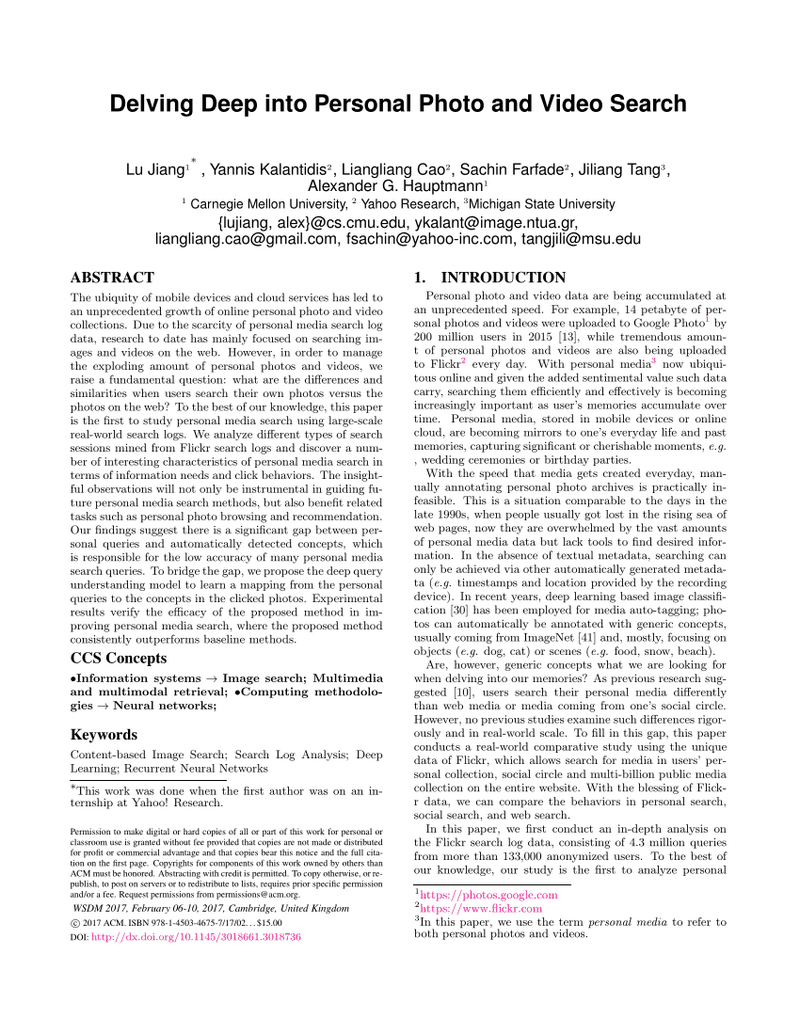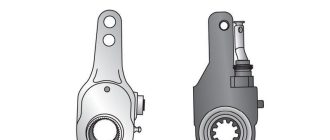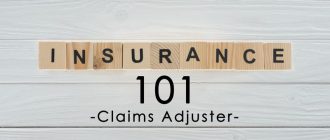
Delving Deep: The Process Followed by Insurance Adjusters.
The process followed by insurance adjusters is a critical step in the insurance claims journey. As insurance professionals, we understand the importance of delving deep into each case to ensure a fair and accurate assessment of damages.
Delving Deep: Our team of experienced insurance adjusters meticulously examines the details of every claim, leaving no stone unturned. We understand that thorough investigation is vital to provide our clients with the support they need.
The Insurance Process: From the initial report to the final resolution, our insurance adjusters follow a meticulous process. They carefully gather evidence, interview involved parties, and assess the extent of damages, all while adhering to industry regulations and guidelines.
Insurance Adjusters: Our skilled insurance adjusters are trained professionals, well-versed in handling complex claims. They possess a deep understanding of insurance policies and have the expertise to negotiate fair settlements on behalf of our clients.
“We believe in the power of thorough investigation and accurate assessment. Our insurance adjusters strive to ensure that our clients receive the compensation they deserve.”
At Ace Insurance, we take pride in our commitment to excellence. Our insurance adjusters are dedicated to providing a seamless claims experience, offering support and guidance every step of the way. Trust us to be your partner in navigating the insurance process.
For more information on our insurance services and the process followed by insurance adjusters, visit the Ace Insurance Blog today!
About Insurance Adjusters
Insurance adjusters play a crucial role in the process followed by insurance companies. They are trained professionals who delve deep into claims to determine the extent of coverage and the compensation to be paid.
Insurance adjusters work closely with policyholders and investigate the details of an incident or accident. They gather information, conduct interviews, and analyze evidence to assess the validity of a claim. This involves examining documents, inspecting damaged property, and interviewing witnesses.
The expertise of insurance adjusters helps ensure that policyholders are treated fairly and that insurance companies are not paying out fraudulent claims. They are skilled at evaluating the cause and extent of damages, estimating the cost of repairs or replacements, and negotiating settlements with claimants.
The process followed by insurance adjusters requires a thorough understanding of insurance policies and local regulations. They must be knowledgeable about different types of coverage and be able to interpret policy language to determine the extent of liability. Adjusters must also stay updated on changes in insurance laws and regulations to ensure compliance.
In addition to investigating claims, insurance adjusters also play a role in risk assessment and loss prevention. They may provide recommendations to policyholders on how to reduce risks and prevent future incidents. This proactive approach helps insurance companies mitigate losses and maintain profitability.
In conclusion, insurance adjusters are essential in the insurance process followed by insurance companies. Their expertise, attention to detail, and analytical skills ensure fair and accurate claim assessment. By following a comprehensive and meticulous process, insurance adjusters ensure that policyholders receive the proper coverage and compensation they are entitled to.
Role of Insurance Adjusters
Insurance adjusters play a vital role in the insurance claim process. They are responsible for assessing the damage and determining the appropriate amount of compensation to be paid to policyholders. This includes investigating the cause of the loss, reviewing policy terms and conditions, and assessing the extent of the damage.
Insurance adjusters follow a deep process to ensure a fair and accurate assessment. They begin by conducting a thorough investigation into the claim, gathering relevant information and evidence. This may involve visiting the site of the loss, interviewing witnesses, and consulting experts.
Once they have gathered all the necessary information, insurance adjusters analyze the policy coverage to determine the extent of liability. They carefully review the policy terms and conditions, including exclusions and limitations, to ensure that the claim is covered by the policy.
Insurance adjusters then evaluate the damage and calculate the appropriate amount of compensation. This involves assessing the physical damage to the property, estimating the cost of repairs or replacement, and considering any applicable deductibles or depreciation.
Throughout the process, insurance adjusters communicate with policyholders and other parties involved in the claim. They provide updates, answer questions, and guide the policyholders through the claims process. They also negotiate with policyholders and their representatives to reach a fair settlement.
In conclusion, insurance adjusters play a crucial role in the insurance claim process. They follow a deep and detailed process to assess the damage, determine coverage, and calculate compensation. Their expertise and knowledge ensure that policyholders receive fair and accurate settlements.
| Conducting thorough investigations |
| Reviewing policy terms and conditions |
| Evaluating the extent of damage |
| Calculating appropriate compensation |
| Communicating with policyholders |
| Negotiating fair settlements |
Types of Insurance Adjusters
When it comes to the process of delving deep into an insurance claim, different types of insurance adjusters play crucial roles in ensuring a fair and accurate assessment. These adjusters are professionals in the insurance industry who specialize in assessing and evaluating insurance claims. They work diligently to determine the extent of coverage and the amount of compensation that policyholders deserve.
There are several types of insurance adjusters, each with their own area of expertise and responsibilities:
| Company or Staff Adjuster | These adjusters are employed directly by insurance companies and handle claims on behalf of the company. They work closely with policyholders to investigate and evaluate claims, ensuring that the company’s interests are protected while also providing fair compensation to the insured. |
| Independent Adjuster | Independent adjusters are contracted by insurance companies on a case-by-case basis. They have no affiliation with any specific insurance company and are hired temporarily to handle claims. These adjusters are experienced professionals who offer their expertise in assessing and evaluating claims fairly and impartially. |
| Public Adjuster | Public adjusters work exclusively on behalf of policyholders. They advocate for the insured and negotiate with insurance companies to secure the best possible settlement for their clients. Public adjusters are knowledgeable about insurance policies and help policyholders navigate the claims process effectively. |
| Catastrophe Adjuster | Catastrophe adjusters are called in during times of natural disasters or catastrophic events that result in a large number of insurance claims. They are experienced in handling high volumes of claims efficiently and ensure that policyholders receive the necessary assistance and compensation in a timely manner. |
These various types of insurance adjusters work together to ensure that the insurance claims process is fair, accurate, and efficient. Each adjuster brings their unique skills and expertise to the table, making sure that policyholders and insurance companies are both treated fairly in the assessment and settlement of claims.
Qualifications needed for Insurance Adjusters
Insurance adjusters are professionals who play a crucial role in the insurance process. They are responsible for evaluating and estimating damage or loss, determining claim settlements, and negotiating with policyholders. To excel in this field, insurance adjusters must possess certain qualifications.
Education and Training: A strong educational background is essential for insurance adjusters. Most employers require adjusters to have a bachelor’s degree in a related field, such as finance, business, or insurance. Additionally, completing courses or obtaining certifications in insurance adjusting can greatly enhance an adjuster’s skills and knowledge.

Analytical Skills: Insurance adjusters must have excellent analytical skills to assess the extent of damage or loss accurately. They should be able to analyze policies, investigate claims thoroughly, and determine coverage limits based on policy terms and conditions.
Communication Skills: Effective communication is a crucial skill for insurance adjusters. They must be able to explain complex insurance concepts to policyholders and negotiate claim settlements with both the insured and other parties involved. Clear, concise, and persuasive communication can greatly impact the outcome of a claim.
Detail Orientation: Insurance adjusters must possess a keen eye for detail. They need to examine evidence, review documents, and gather information meticulously to ensure accurate claim evaluations and settlements. A meticulous approach helps avoid errors and strengthens the integrity of the claims process.
Empathy and Customer Service: Insurance adjusters often deal with policyholders who are dealing with difficult situations, such as property damage or personal injury. Being empathetic and providing exceptional customer service is crucial in building trust, maintaining professional relationships, and ensuring customer satisfaction.
Legal Knowledge: Insurance adjusters should possess a solid understanding of insurance laws and regulations. This knowledge helps them navigate the complex legal framework governing insurance claims and ensures compliance with relevant laws and regulations.
Overall, insurance adjusters follow a detailed process in delving deep into claims, assessing damage, and determining claim settlements. By possessing the qualifications mentioned above, insurance adjusters can excel in their role and provide efficient and reliable service to policyholders.
Delving Deep into the Process
Insurance adjusters, by definition, play a critical role in the insurance industry. They are the professionals who are responsible for assessing and evaluating damage claims made by policyholders. This process involves a meticulous investigation and analysis to determine the extent of the loss and the appropriate settlement amount.
The process followed by insurance adjusters is a comprehensive one, designed to ensure fairness and accuracy in claim settlement. It typically begins with the initial assessment of the claim, where adjusters gather information from policyholders and any relevant sources, such as witnesses or documentation. This step helps establish the facts and circumstances surrounding the claim.
Once the initial assessment is complete, adjusters proceed to investigate the claim further. This may involve visiting the site of the loss, inspecting damaged property, interviewing witnesses, or consulting experts for their opinions. The goal is to gather as much evidence as possible to support the claim and validate its legitimacy.
After the investigation, adjusters analyze the collected information and assess the extent of the loss. They consider factors such as policy coverage, policy limits, and any applicable deductibles. This analysis helps determine the fair and reasonable settlement amount, in accordance with the policy terms and conditions.
Throughout the process, adjusters maintain communication with all relevant parties, including policyholders, insurance company representatives, and any other involved individuals. This ensures transparency and keeps everyone informed about the progress of the claim. Adjusters may also negotiate with policyholders or their representatives to reach a mutually agreeable settlement.
In the final stages, adjusters prepare a detailed report that outlines their findings, analysis, and settlement recommendation. This report serves as a basis for the insurance company’s decision on the claim. Adjusters may present their report to higher authorities or claims committees for review and approval.
Overall, the process followed by insurance adjusters is one that requires expertise, attention to detail, and a commitment to fairness. By delving deep into the facts and circumstances of a claim, adjusters ensure that policyholders receive the appropriate settlement for their losses, while also protecting the interests of the insurance company.
Initial Steps taken by Insurance Adjusters
When a claim is filed by a policyholder, insurance adjusters swing into action. These professionals play a crucial role in the claims process, assessing the damage and determining the coverage and amount to be paid out. The steps followed by insurance adjusters are meticulous and thorough, ensuring a fair and accurate settlement.
First and foremost, insurance adjusters conduct an initial investigation. This involves gathering all relevant information regarding the incident, such as police reports, witness statements, and photographs. They also review the policy terms and conditions to understand the coverage and exclusions.
Once the initial information is collected, insurance adjusters visit the site of the incident to assess the damage firsthand. They inspect the property, vehicle, or any other affected areas to determine the extent of the loss. This allows them to calculate an accurate estimate for repairs or replacement.
During the assessment, insurance adjusters may also consult with experts in various fields, such as contractors, engineers, or medical professionals, to evaluate the damage or injuries. This collaborative approach ensures an objective and comprehensive evaluation of the claim.
After gathering all necessary information and completing the assessment, insurance adjusters analyze the data to determine the coverage and settlement amount. They consider factors such as the policy limits, deductibles, depreciation, and any applicable laws or regulations. This analysis involves weighing the evidence and applying industry standards to arrive at a fair and equitable resolution.
Once the analysis is complete, insurance adjusters present their findings to the policyholder and negotiate a settlement. They explain the rationale behind their decision and address any questions or concerns raised by the policyholder. The goal is to reach a mutually satisfactory agreement that meets the policyholder’s needs while adhering to the terms of the policy.
The initial steps taken by insurance adjusters demonstrate their commitment to providing a professional and thorough evaluation of claims. Their attention to detail and expertise ensure a fair and accurate settlement for policyholders, helping to restore their lives and properties in the aftermath of an incident.
Investigation Process by Insurance Adjusters
Insurance adjusters play a crucial role in the insurance process. Their main responsibility is to investigate insurance claims to determine the validity and extent of the coverage. The investigation process followed by insurance adjusters is comprehensive and meticulous, ensuring that all aspects of the claim are thoroughly examined.
The process begins with the adjuster reviewing the insurance policy to understand the coverage and any exclusions or limitations. They then gather all relevant information, such as photographs, videos, and witness statements, to assess the damages and circumstances surrounding the claim.
Once the necessary information is collected, insurance adjusters conduct interviews with the policyholders, witnesses, and any other involved parties. These interviews help the adjuster gain a better understanding of the incident and verify the details provided in the claim. They may also consult with experts, such as engineers or medical professionals, to evaluate the extent of the damages or injuries.
During the investigation process, adjusters also examine any available documentation, such as police reports, medical records, or invoices, to substantiate the claim. They verify the authenticity of the documents and ensure that they align with the reported damages or losses.
After gathering all the necessary information, insurance adjusters analyze the findings to make an informed decision on the claim. They determine whether the claim should be approved, denied, or if further investigation is required. Adjusters also evaluate the extent of coverage and calculate the appropriate amount of compensation, taking into account deductibles, limits, and policy provisions.
Communication is a vital aspect of the investigation process. Insurance adjusters keep the policyholders informed throughout the investigation, explaining the progress, any additional information needed, or the final decision regarding the claim. They maintain professional and transparent communication to ensure that policyholders understand the outcome of their claim.
In conclusion, insurance adjusters delve deep into the investigation process, meticulously examining every aspect of the claim to determine its validity and extent of coverage. Their objective approach and comprehensive analysis ensure a fair and accurate assessment, providing policyholders with the appropriate compensation they deserve.
Evaluation of Insured Property
When it comes to insurance, delving deep into the evaluation of insured property is a crucial step followed by insurance adjusters. This meticulous process ensures that the insured property is accurately assessed, and any damage or loss is properly documented.
The evaluation of insured property involves a comprehensive inspection by experienced adjusters who employ a variety of techniques and tools to assess the condition and value of the property. They meticulously examine the property’s structure, contents, and any other relevant factors to determine its insurance worthiness.
Insurance adjusters delve deep into understanding every aspect of the insured property. They carefully analyze the property’s construction materials, architectural design, and geographic location to evaluate its vulnerability to various risks, such as natural disasters or accidents. This analysis helps insurance adjusters determine the appropriate level of coverage needed to adequately protect the property.
During the evaluation process, insurance adjusters may also consult with experts from various fields, such as engineers, appraisers, or contractors, to ensure an accurate assessment. These experts provide specialized knowledge and insights that contribute to a comprehensive understanding of the insured property’s value.
Once the evaluation is complete, insurance adjusters compile a detailed report outlining their findings. This report serves as a crucial document for both the insurer and the insured, as it provides a clear understanding of the property’s value and any potential risks it may face.
In conclusion, the evaluation of insured property is a meticulous process followed by insurance adjusters to accurately assess the property’s value and any potential risks. By delving deep into the various aspects of the property, insurance adjusters ensure that the insurance coverage adequately protects the insured property and provides peace of mind to the policyholder.
Negotiation and Settlement
Delving deep into the process followed by insurance adjusters, negotiation and settlement play a crucial role in ensuring a fair and equitable resolution for both parties involved.
The insurance adjusters, armed with a deep understanding of the insurance policies and claims process, work diligently to negotiate a settlement that meets the needs and expectations of the policyholder.
The negotiation process is a delicate balance of assessing the damage, evaluating the extent of coverage, and considering the policy language. The adjusters gather all the necessary information, including evidence, quotes, and expert opinions, to substantiate their assessments.
In this meticulous process, the adjusters use their expertise and industry knowledge to assess the loss and determine a fair settlement amount. They consider factors such as property damage, medical expenses, and loss of income, ensuring that the policyholder receives the appropriate compensation.
Throughout the negotiation, the adjusters communicate and collaborate with the policyholder, keeping them informed about the progress and discussing various options. This open and transparent approach helps build trust and ensures that the policyholder’s interests are represented effectively.
Once an agreement is reached, the settlement is finalized, and the policyholder receives the compensation they are entitled to. The insurance adjusters strive to ensure a smooth and timely settlement process, providing the necessary documentation and support to expedite the resolution.
In conclusion, negotiation and settlement form a crucial part of the process followed by insurance adjusters. Through their expertise, diligence, and transparent communication, they aim to achieve a fair and satisfactory resolution for both parties involved.
Coordinating with Other Parties
Deep within the insurance industry, the process followed by insurance adjusters delving into claims is meticulous and thorough. One crucial aspect of this process is coordinating with other parties involved in the claim.
Insurance adjusters have to work closely with a diverse range of parties, including policyholders, witnesses, experts, and legal representatives. By coordinating with these stakeholders, adjusters gather information and evidence necessary to evaluate and process claims effectively.
To ensure smooth communication and collaboration, insurance adjusters establish clear lines of communication with each party involved. They take the initiative to schedule meetings, interviews, and site visits to gather statements, inspect damages, and assess the situation.
Furthermore, insurance adjusters may need to collaborate with external experts or specialists when evaluating complex or specialized claims. They facilitate communication and provide the necessary information to these experts to ensure accurate assessments and comprehensive evaluations.
Clear and concise documentation is crucial for coordinating with other parties. Insurance adjusters maintain a detailed record of all interactions, conversations, and findings. This documentation helps ensure transparency and accountability throughout the claims process.
Coordinating with other parties is an integral part of the insurance adjuster’s process. By fostering effective communication and collaboration, insurance adjusters can gather the necessary information and evidence to accurately assess and process claims, providing fair and prompt settlements to policyholders.
Important Documentation and Paperwork
As insurance adjusters delving deep into the process of investigating and evaluating claims, we understand the importance of proper documentation and paperwork. This crucial step ensures that every detail is recorded accurately and provides the necessary evidence to support our decisions.
Insurance adjusters are trained to thoroughly review all relevant documents, including policy agreements, claim forms, and any supporting documents provided by the policyholder. We meticulously analyze this paperwork to determine the coverage limits, exclusions, and applicable endorsements to assess the claim accurately.
During the documentation process, adjusters take detailed notes, capturing all conversations, inquiries, and observations related to the claim. These detailed records allow us to have a comprehensive understanding of the situation and maintain a complete and transparent record of our findings.
Accurate documentation and paperwork are instrumental in resolving claims efficiently and fairly. These records serve as a valuable resource during negotiations and can help substantiate our decisions.
Furthermore, this documentation is essential for legal and regulatory purposes. In the event of a dispute or litigation, having comprehensive and well-documented records can be crucial in defending our position and demonstrating our adherence to industry standards and best practices.
At Ace Insurance, we emphasize the importance of proper documentation and paperwork throughout the claims process. Our experienced adjusters meticulously work with policyholders to gather and review all necessary documents to ensure a fair and efficient resolution of their claims.
By following a diligent and meticulous process and maintaining accurate documentation, our insurance adjusters provide policyholders with the peace of mind that their claims are being handled professionally and with attention to detail.
Question-answer:
What is the topic of the blog post “Delving Deep: The Process Followed by Insurance Adjusters”?
The blog post “Delving Deep: The Process Followed by Insurance Adjusters” discusses the investigative process followed by insurance adjusters.
Why is it important for insurance adjusters to delve deep into claims?
It is important for insurance adjusters to delve deep into claims in order to gather all necessary information and evidence to determine the validity and amount of the claim.
What are some common steps in the process followed by insurance adjusters?
Some common steps in the process followed by insurance adjusters include contacting the policyholder, conducting interviews, reviewing documents and evidence, assessing damages, and negotiating settlements.
How long does the claims investigation process typically take?
The length of the claims investigation process can vary depending on the complexity of the claim, but it usually takes a few weeks to a few months.
Are insurance adjusters responsible for determining liability in a claim?
Yes, insurance adjusters are responsible for determining liability in a claim by gathering evidence and assessing the circumstances of the incident.
What is covered in the blog post “Delving Deep: The Process Followed by Insurance Adjusters – Ace Insurance Blog”?
The blog post “Delving Deep: The Process Followed by Insurance Adjusters – Ace Insurance Blog” covers the process followed by insurance adjusters when investigating a claim.






